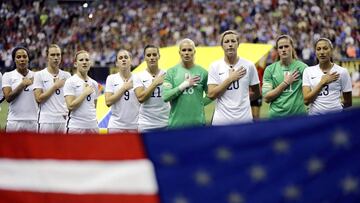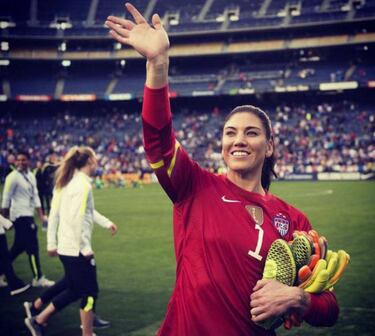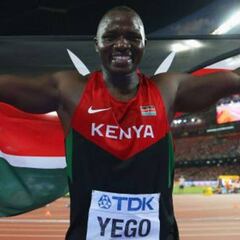Zika virus threat worrying athletes ahead of Rio 2016
The US Olympic Committee says athletes should not travel if "they are not comfortable doing so." Justin Gatlin and Hope Solo have expressed concerns.

The World Health Organization (WHO)’s announcement of an “international emergency” over the Zika virus – which the WHO says has the potential to infect some four million people across Latin America – has resulted in the possibility of the United States withdrawing from the 2016 Olympic Games in Rio.
US President Barack Obama said during an interview with CBS that he had asked Congress for two billion dollars towards a prevention and containment plan against the mosquito-borne virus, which can lead to microcephaly in newborn children. Several American nations -- Colombia, the Dominican Republic, Ecuador, El Salvador, and Jamaica -- have advised women to avoid pregnancy until the full risks are evaluated and the US Center for Disease Control and Prevention has advised pregnant US citizens to take extra precautions or to postpone travel to the region entirely.
President Obama’s words were later picked up on by the US Olympic Committee, which advised the heads of national sports federations that their athletes “should not travel to Brazil if they do not feel comfortable doing so.”
Several athletes have already responded to the alert in place over the Zika virus and the USOC’s communiqué. British rower Andrew Triggs Hodge, a gold medallist in 2008 and 2012, has said that his wife will not travel to Brazil: “The Zika virus is a very real threat to anyone thinking of starting a family,” he said.
Sprinter Justin Gatlin, Olympic 100m champion in 2004, has said that he would prefer to avoid the Rio Games, “but the temptation of winning a medal is too big. Even so, I’ll cross my fingers that the situation is more contained then.”

Related stories

"If my health is put at risk by Zika, I'm not going to Brazil"
US women’s national football team keeper Hope Solo also spoke of her concerns about representing her country in Rio: “Zika definitely worries me. Of course I’ve been watching what’s happening in the news. I know it’s spreading and there is no vaccine against it, and that’s why it worries me. I don’t want to run the risk of having a child who isn’t healthy. I reserve the right to have a healthy baby.”
Despite the WHO alert and the USOC’s stance, as well as that of Kenya’s Olympic Committee, Rio 2016 organizers are confident that the Games will not be affected by the virus. “Inscription for the Games will be full because nobody is going to give up an Olympics over a virus that occurs in summer,” said Rio 2016 media chief Mario Andrada.
